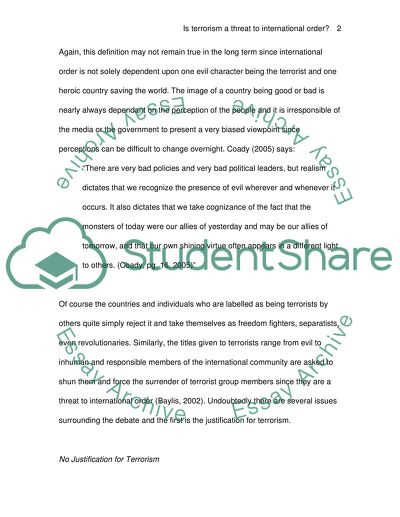Cite this document
(Is Terrorism a Threat to International Order Term Paper, n.d.)
Is Terrorism a Threat to International Order Term Paper. Retrieved from https://studentshare.org/military/1538176-is-terrorism-a-threat-to-international-order
Is Terrorism a Threat to International Order Term Paper. Retrieved from https://studentshare.org/military/1538176-is-terrorism-a-threat-to-international-order
(Is Terrorism a Threat to International Order Term Paper)
Is Terrorism a Threat to International Order Term Paper. https://studentshare.org/military/1538176-is-terrorism-a-threat-to-international-order.
Is Terrorism a Threat to International Order Term Paper. https://studentshare.org/military/1538176-is-terrorism-a-threat-to-international-order.
“Is Terrorism a Threat to International Order Term Paper”. https://studentshare.org/military/1538176-is-terrorism-a-threat-to-international-order.


